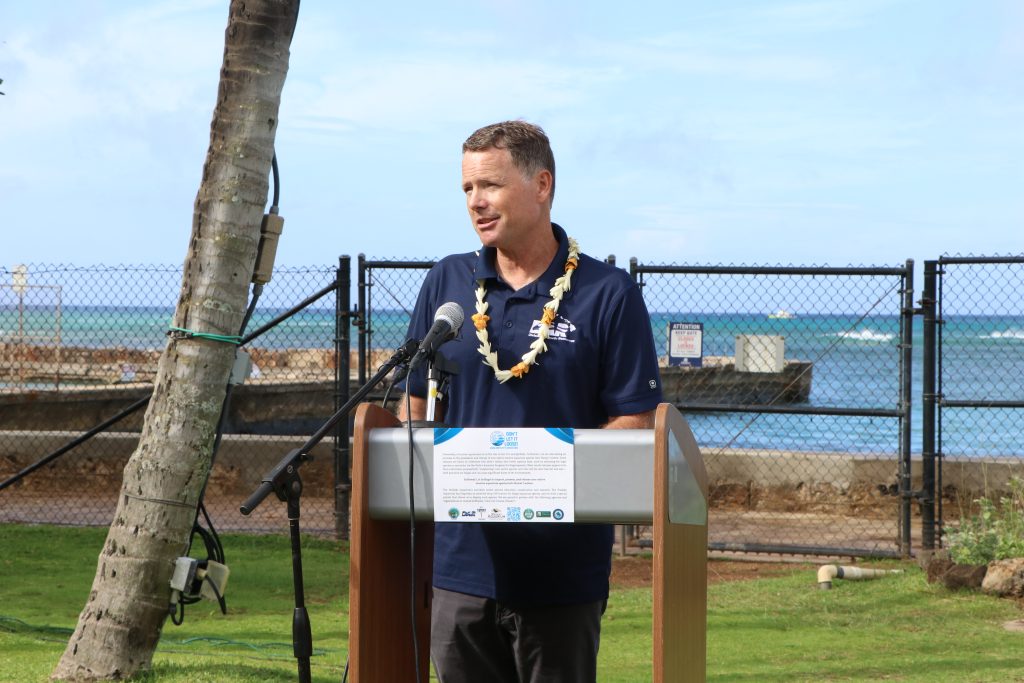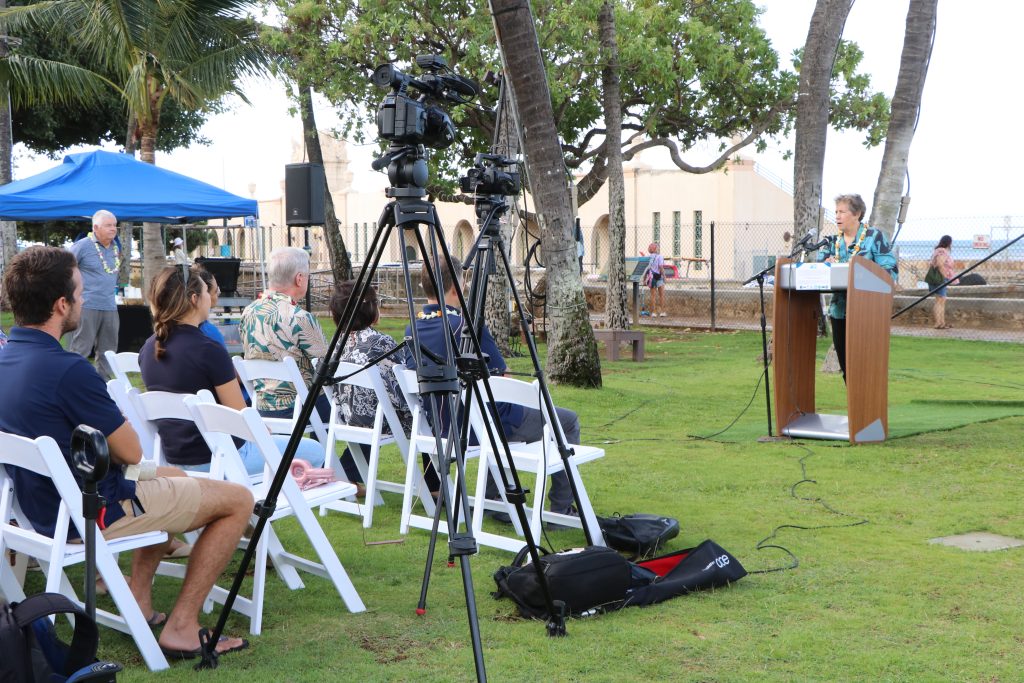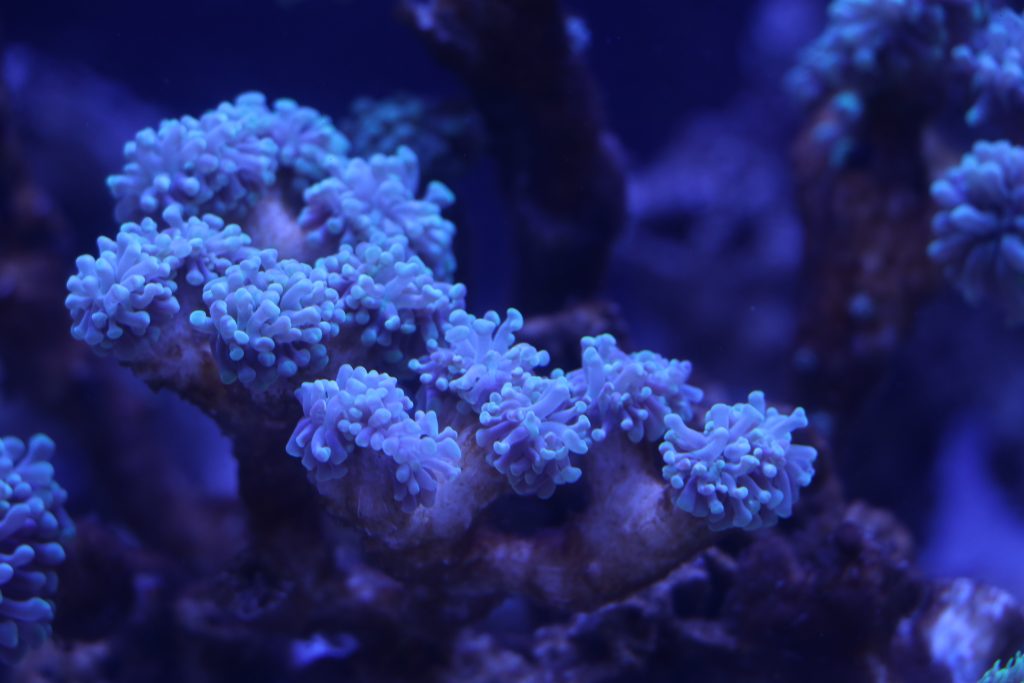New, spread of invasive marine species sparks ‘Don’t Let It Loose’ campaign

Illegal and harmful marine aquarium species are being set loose on Hawai‘i’s reefs, according to the state departments of Agriculture and Land and Natural Resources. And, the threat of non-native species to nearshore ecosystems has led to the launch of the “Don’t Let It Loose” campaign.
“It takes all of us to protect Hawai‘i, and we encourage hobbyists to voluntarily surrender illegal animals through the Hawai‘i Department of Agriculture Amnesty Program. This is a safe and responsible way to protect our unique environment,” said Sharon Hurd, chairperson of the Hawai‘i Board of Agriculture. “We also note that we do our best to find an appropriate and legal home for animals turned in under amnesty.”
The “Don’t Let it Loose” campaign aims to prevent the importation and possession of illegal and harmful marine aquarium species and to prevent the release of these invasives into the ocean.
The ecological impacts of aquarium releases can be broad. In aquatic systems, some non-native fishes, seaweeds and invertebrates can spread rapidly and form overpopulated habitats that are difficult or impossible to remove, once established.
These non-native species can increase competition with native species for resources like food and habitat. They affect the stability and capacity of the natural ecosystem. Impacts from these invasive species can be seen in the loss of native hard coral cover, degradation of overall water quality and decreases in resources for native species.
Marine aquarium releases can also have socioeconomic consequences, officials said. Local fishermen will experience decreased catches of native species, putting pressure on the food supply. Some pest species cause health hazards or unpleasant conditions for beachgoers. The cost of responding to these introductions through removal or long-term management is a heavy burden on Hawai‘i.
The Hawai‘i Department of Agriculture Plant Quarantine Branch, the Department of Land and Natural Resources Division of Aquatic Resources, the University of Hawai‘i-Waikīkī Aquarium, and the Coordinating Group on Alien Pest Species are teaming up to lead the Don’t Let It Loose campaign.
The week-long campaign kick-off was held this morning at the Waikīkī Aquarium. Other events during the week include talks and webinars.
In Hawai‘i, it is illegal for private individuals to import and possess most non-native marine aquarium animals. Individuals found to be possessing illegal animals can be charged with a Class C felony, face fines of up to $200,000 and up to three years in prison. Only buy from reputable local pet stores and when in doubt, keep it out.
People may voluntarily surrender illegal animals, including aquarium species, under the Agriculture Department’s Amnesty Program with no questions asked. No penalties will be imposed if a person voluntarily turns in a prohibited species before an investigation is initiated. Animals may be dropped off at the Waikīkī Aquarium or any Plant Quarantine Office statewide. Tips regarding illegal animals may be made confidentially to 808-643-PEST (7378).
The Waikīkī Aquarium has long been an Amnesty Program partner and drop-off location. “Recently, someone surrendered to the aquarium several non-native coral species, all of which were illegal for the owner to possess,” said Andrew Rossiter, director of the Waikīkī Aquarium.
“One of the species is a close relative of the non-native soft coral that is spreading in Pearl Harbor, also believed to be from an aquarium release,” Rossiter said. “We’ve also received several freshwater fishes that are prohibited in Hawaiʻi. I think this is just the tip of the iceberg, and reminding people of the laws and encouraging aquarium hobbyists to hand in such species through this program is a great way to address the problem.”
Division of Aquatic Resources Administrator Brian Neilson said: “In May, a DAR team removed four colonies of non-native coral from ʻAnini Bay on Kaua‘i. It’s believed the corals were dumped from a saltwater aquarium. The possibly unwitting actions of a home aquarium owner could spread diseases to native corals. The Don’t Let it Loose message and availability of the amnesty program provides a reminder and a safe and easy way to prevent the spread of invasive or introduced species.”















_1768613517521.webp)



